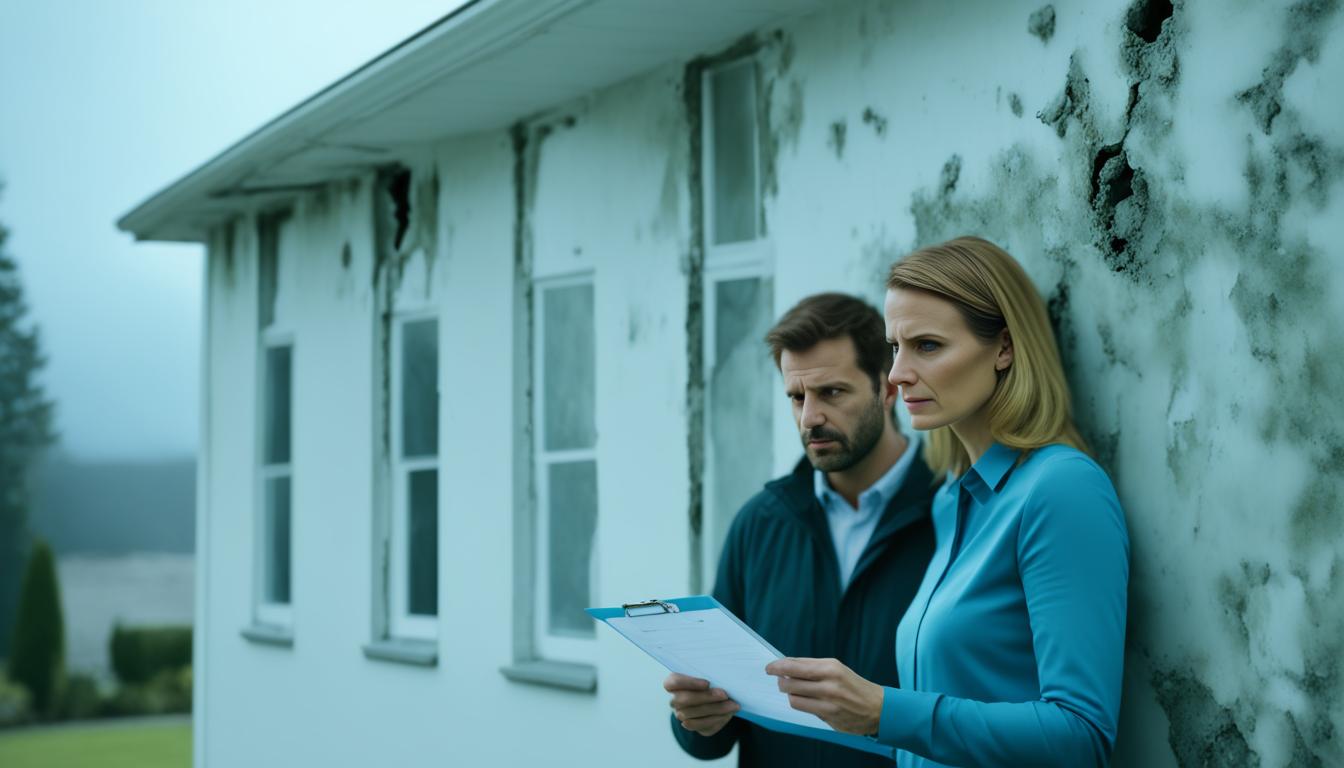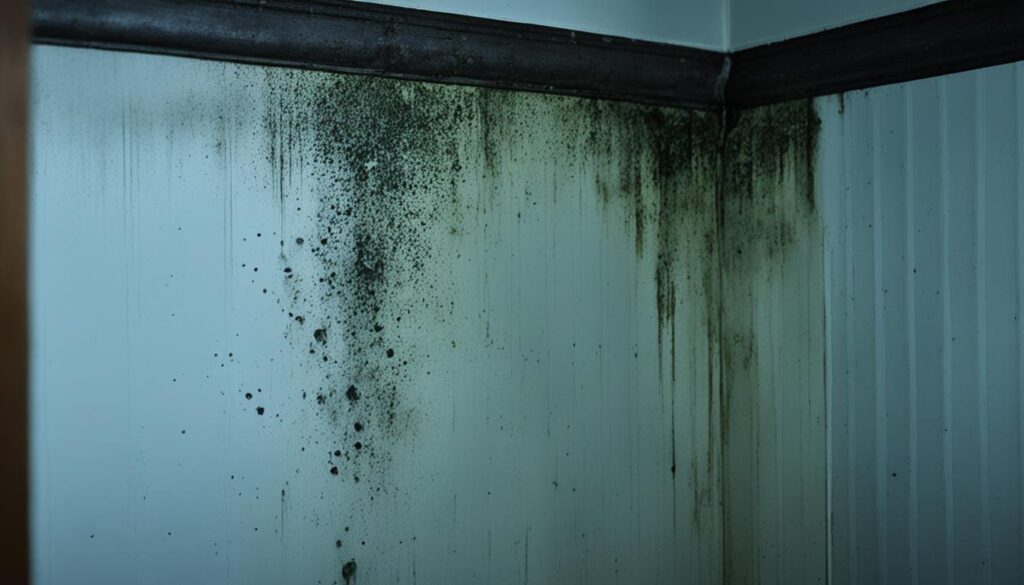
Navigating Mold Issues When Buying a House
Buying a house is an exciting and significant milestone in one’s life. However, it’s crucial to be aware of potential issues that could affect the safety and value of your investment. One such issue is mold, which can have serious consequences for both the health of the occupants and the structural integrity of the property. It’s essential to be proactive and informed when it comes to buying a house with mold to protect yourself and your investment.
Key Takeaways:
- Conduct a thorough mold inspection before buying a house to identify any existing mold problems.
- Consider hiring a professional mold inspector to ensure accurate and comprehensive testing.
- Mold testing is necessary for a home purchase to determine the type and extent of mold present.
- Addressing mold issues promptly through proper remediation is crucial to safeguarding your health and the value of the property.
- Always insist on full disclosure from the seller regarding any known mold problems or previous remediation efforts.
Understanding Health Risks and Ensuring Remediation
When it comes to buying a new home, one of the essential factors to consider is the presence of mold. Not only can mold impact the structural integrity of a property, but it also poses significant health risks to occupants. In this section, we will explore the health risks associated with mold in homes and emphasize the importance of ensuring proper mold remediation in the real estate market.
Health Risks of Mold in Homes
Mold is a type of fungi that thrives in damp and poorly ventilated areas. When present in homes, it can release tiny spores into the air, which can be easily inhaled or come into contact with the skin. These spores can trigger allergic reactions, respiratory issues, and other health problems, particularly among individuals with pre-existing conditions or weakened immune systems.
To better understand the potential health effects of mold exposure, let’s take a closer look at some common symptoms:
- Nasal congestion and sinus irritation
- Coughing and wheezing
- Shortness of breath
- Eye, throat, and skin irritation
- Headaches
- Fatigue and weakness
These symptoms may vary in severity depending on the individual’s sensitivity to mold and the extent of exposure. It is crucial to prioritize the health and well-being of yourself and your family when considering a new home purchase.
Dealing with Mold in New Home Purchase
When buying a new home, it is essential to address any mold issues promptly. This can be achieved through comprehensive mold remediation, which involves identifying and eliminating the mold source, cleaning affected areas, and implementing strategies to prevent future growth.
Here are some steps to consider when dealing with mold during the home buying process:
- Mold Inspection: Prioritize a professional mold inspection before making any purchasing decisions. This inspection can help identify the extent of mold presence and inform remediation efforts.
- Consult Experts: Engage the services of experienced mold remediation professionals who can assess the severity of the mold problem and provide guidance on appropriate remediation strategies.
- Request Remediation Records: If the property has undergone previous mold remediation, request documentation that outlines the steps taken and confirms the effectiveness of the remediation process.
- Consider Negotiations: If mold issues are discovered during the home inspection, negotiate with the seller for appropriate remediation measures or potential price adjustments.
“By proactively addressing mold issues and ensuring effective mold remediation, you can safeguard your health and make a more informed buying decision.”
Dealing with mold in a new home purchase can be daunting, but by emphasizing the importance of health and taking the necessary steps to address mold issues, you can mitigate potential risks and ensure a safe living environment for you and your loved ones.

Disclosure and Inspection Steps for Mold-Infested Houses
When buying a house, it is crucial to be aware of any potential mold issues. This section will guide you through the necessary steps for dealing with mold-infested houses, emphasizing the importance of disclosure and a comprehensive home inspection.
Sellers have a legal obligation to disclose any known mold problems during a real estate transaction. It is essential to thoroughly review all seller disclosures and inquire about previous mold incidents. Additionally, engage a qualified mold inspector to evaluate the property before finalizing the purchase. A professional home inspection for mold presence will help uncover any hidden mold issues and provide you with the information needed to make an informed decision.
If a mold problem is discovered during the home buying process, it is essential to approach the situation carefully. Consider obtaining quotes from reputable mold remediation companies to assess the cost and extent of the remediation process. Depending on the severity of the mold infestation, you may negotiate with the seller for necessary repairs or mold remediation before closing the deal. Alternatively, you could request a reduction in the purchase price to cover the expenses of addressing the mold issue after the sale.
Remember, buying a mold-infested house without proper inspection and disclosure can lead to significant health risks and financial burdens. By prioritizing disclosure and thorough inspection, you can protect yourself from the potential consequences of mold exposure and ensure a safer living environment for you and your family.




